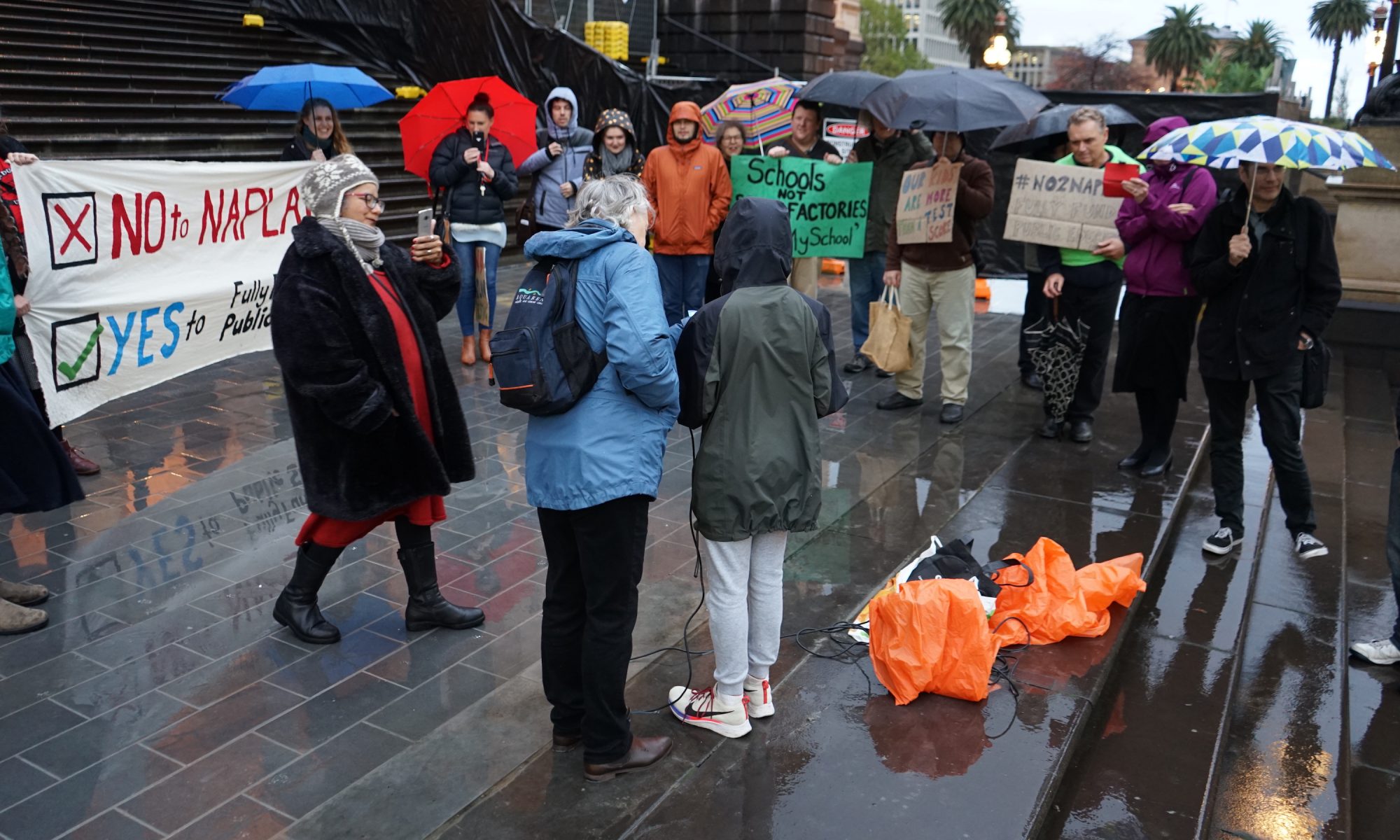This statement was brought to the June 2019 Victorian AEU State Council meeting for discussion by teacher representatives who are part of MESEJ.
The 2019 federal election
The election results are a blow for AEU members. $14 billion worth of public school funding, plus billions for TAFE and pre-schools were at stake. Our union was right to call to put Labor and Greens ahead of the Liberal government this election.
But, for the second federal election in a row, the political and financial costs of the AEU marginal seats campaign have not paid off. Without anything to show for it, the Victorian branch spent millions of union dollars on radio, movie, billboard and digital advertising, on t-shirts, campaign vans, mail-outs, not to mention the time unionists committed to the campaign.
There was also a political cost. Union leaders talked a strong sub branch out of a boycott of NAPLAN a week before the election. What could have been a lightning rod for debate and even further action against the testing agenda was instead seen as off-message noise, competing with the election campaign.
The AEU didn’t articulate an opposition to the ‘school choice’ agenda, the poisonous heart of the inequality in Australian education, and even conceded the word ‘public’ at door knocks and polling booths, asking the electorate to vote ‘for education’. Now we are facing down another three years of a Federal government that is ideologically opposed to public education.
Mobilise and build industrial strength
We need to shift gears and return to our real union strength: members taking industrial action to win our demands.
Educators in public schools have every reason to fight. We are teaching with inadequate preparation time and no enforceable cap on class sizes. Even when we have time to think about what we take into the classroom, many of us are being asked to implement a tightly micro-managed curriculum. The standardization of curriculum driven by the testing agenda is alienating us from our students. We are publicly castigated for the increasing gap in educational outcomes between rich and poor students, whilst government funding and enrolment policies are responsible.
With strong leadership, this frustration could fuel an industrial campaign for public education, taking on the tangled web of Federal and State neo-liberal education policies. It has been fuelling such a campaign across the US since 2018, starting in the heart of Trump territory and spreading now across six states. Rank and file education workers have organized strike actions, gaining victories defending and increasing public education spending, fighting against deportations of migrant students, winning support services, wage rises and conditions. In the same spirit, 50,000 teachers in NZ went on strike this month.
Demands
To mobilise teachers for industrial action we need sharper demands and to fight for them inside and outside of Enterprise Bargaining periods. As a priority, we want:
• A maximum of 16 hours of classroom teaching per week
• A real cap on class sizes: 20 students in each class
• Control over our curriculum so that it can be rich and responsive to community needs, not driven by competition for NAPLAN scores
• A fully funded place at the local public school for every child; no more funding for private schools
• MySchool and NAPLAN must go
The right to strike
Importantly, we need to be willing to confront anti-strike laws. Under current legislation, we are not allowed to strike around class sizes, or conditions that will force the employer to employ more teachers! We are not allowed to strike to enforce EBAs even if the principal is flagrantly disregarding the agreement. The ban against NAPLAN the AEU planned in 2010 was ruled to be illegal industrial action, so the union backed down. These laws have been a shackle on the entire union movement for decades, but teachers and education workers are in an excellent position to exercise our right to strike; we are a hugely well connected and respected group of workers, and politically difficult to jail, threaten or intimidate.
Building strength
While we need to be politically prepared to challenge the anti-strike laws, we can start with symbolic, galvanizing local actions as the teachers in West Virginia and the red states did; organizing “walk-ins”, where teachers all walk in together at the start of the school day, a show of solidarity around a set of demands. They wore red shirts to show their commitment to the campaign, held protests at politicians offices, campaigned with street stalls, local meetings, network meetings, parents and community information sessions, and finally they built up to indefinite strike action using the rank and file networks they had developed, successfully staring down their own draconian anti-strike legislation.
In the wake of such a bruising election campaign we now have a responsibility to rebuild the rank and file confidence to lead a fight back ourselves, not gamble again on another electoral solution, or lobbying strategies. There is now nothing to lose but our class sizes and our data walls. We have a public education system to win.
AEU VIC councillors: Lucy Honan, Chris Breen, Fiona Taylor, George Lilley, Mary Merkenich, Lachlan Marshall

